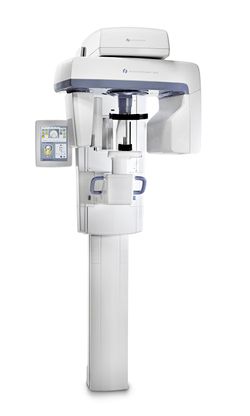Why one Arizona dentist calls 3D imaging a "game-changer" for his dental practice
There’s an old saying that goes, “You don’t know what you don’t know.” For Dr. Dan Indech, a periodontist in Phoenix, Ariz., that saying held very true for him and his practice before he incorporated 3D imaging into his treatment mix.
“Over the years, I’ve used 3D imaging and I can tell you it’s allowed me to make diagnoses that I couldn’t make with 2D imaging,” said Dr. Indech, who owns the OP300 Maxio from Instrumentarium. “It’s really taken me and my practice to the next level because now I have the data I need to make better diagnoses.”
HOT READ: From 1-50, the best and worst states to work in a dental practice
During our conversation, Dr. Indech told me that 3D imaging wasn’t just something that was “wowing” his patients when he showed them the scans of their facial anatomy. It was also technology that was providing fascinating results and discoveries for him and his team.
“I think this technology is game-changing for any of the disciplines that get under the gumline or do surgery,” Dr. Indech said. “I’ve had multiple applications of dealing with patients in orthodontic treatment where this has been so valuable. If you take a full scan, it’s amazing what shows up in other parts of the mouth. I’ve found decay that hasn’t been seen in conventional radiography just because of the location of the tooth. It goes hand-in-hand with other technologies that are arriving in our profession.”
Trending: 4 things you should know about gray market dental products
To hear more from Dr. Indech and how 3D imaging has impacted his practice, please watch the video below.

About the OP300 Maxio: Instrumentarium Dental’s feature-reach OP300 Maxio Pan/Ceph/3D introduces new and larger fields-of-view for dental and maxillofacial imaging, as well as low dose technology (LDT), designed to provide quality-optimized cone beam 3D scan at radiation dosages up to five times less than traditional 2D panoramic images.
For more information, visit instrumentariumdental.com or call (800) 558-6120.
